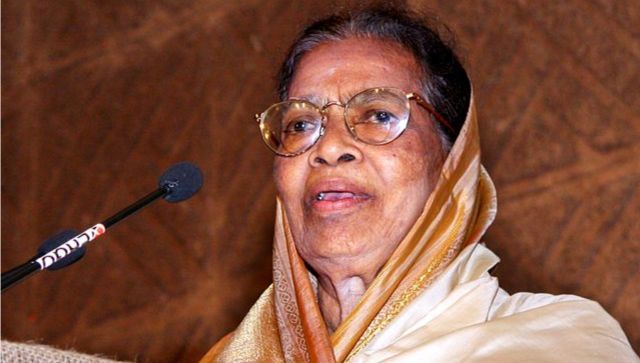India has lost its first female judge of the Supreme Court. Justice M Fathima Beevi passed away at a private hospital in Kerala’s Kollam on Thursday (23 November) at the age of 96. Kerala chief minister Pinarayi Vijayan expressed grief at her demise and remembered how her life was an “unforgettable symbol in the history of women’s advancement in the state”, reported News18. Condoling her death, Kerala health minister Veena George said Justice Beevi was a “brave” woman with many records to her name. “She was a personality who through her own life showed that willpower and a sense of purpose can overcome any adversity," George said in a statement, as per the news agency PTI. Who was Justice Fathima Beevi? Justice M Fathima Beevi smashed the glass ceiling in her career and served as a role model for women. Born in Kerala’s Pathanamthitta in 1927, she completed her graduation in Chemistry from Women’s College in Thiruvananthapuram. Her father, a government servant, encouraged her to study law after which Beevi joined the Government Law College, Trivandrum, as per a Reader’s Digest article. She was only among the five women to have enrolled in her class at the time. She topped the Bar Council exam in 1950, emerging as the first woman to get a Bar Council gold medal.
Deeply saddened at passing away of Justice M. Fathima Beevi, former Governor Tamil Nadu. Her contributions to public service will always be remembered. My thoughts are with her family members in this sorrowful hour. May she rest in peace.-Governor Ravi pic.twitter.com/YWA7W7YOpQ
— RAJ BHAVAN, TAMIL NADU (@rajbhavan_tn) November 23, 2023
Beevi started her career as an advocate in the lower judiciary in Kollam. In a male-dominated environment, she faced “questioning glances” and even “censure” in courts, because of being a woman and that too in a headscarf, the article noted. “Judicial service was more attractive than the practice at that time. Women were not very much encouraged by the general public, very few succeeded as lawyers,” Reader’s Digest quoted her as saying. After her appointment as a munsiff in the Kerala Subordinate Judicial Services in 1958, she gradually climbed up the ladder, and a decade later was promoted as a subordinate judge. By 1972, she became the chief judicial magistrate and district and sessions judge two years later. She joined the Kerala High Court as a judge in 1983 after her stint at the Income Tax Appellate Tribunal. With this, she became the first Muslim woman in the higher judiciary, reported Reader’s Digest. She was elevated as a judge to the apex court in 1989, making her the first woman to become a Supreme Court Justice in Asia, as per Bar and Bench. Recalling this milestone moment, she famously told Scroll.in in an interview: “I opened a closed door.” Speaking to The Week in 2016, when asked if she believed the Indian judiciary was patriarchal, Justice Beevi replied: “Absolutely. No doubt about that.” “There are many women in the field now, both at the bar and in the bench. However, their participation is meagre. Their representation is not equal to men. There is a historical reason also for that … Women took to the field late. It will take time for women to get equal representation in the judiciary. When I went to Law College, there were only five girls in my class in the first year. The number went down to two or three in the second year. Today, in law colleges, we are seeing that a good percentage of the students are women,” Reader’s Digest quoted her as saying. She also won several accolades throughout her career, including the Mahila Shiromani Award in 1990, Bharat Jyoti Award and the US-India Business Council (USIBC) Lifetime Achievement Award. Tumultuous tenure as Tamil Nadu Governor After her retirement from the top court in 1992, she served as a member of the National Human Rights Commission, as per Live Law. In 1997, Justice Beevi was appointed as the governor of Tamil Nadu. Shankar Dayal Sharma, the then President, had remarked on her appointment that “[her] experience of and insights into the working of the Constitution and the laws comprise valuable assets”, reported Reader’s Digest. During her tenure as the governor, she gave a nod to J Jayalalithaa’s appointment as Tamil Nadu chief minister in 2001, sparking a major row. Jayalalithaa’s AIADMK had won the state Assembly elections by a landslide defeating the main rival, Dravida Munnetra Kazhagam (DMK). Beevi’s approval for the AIADMK leader came after she was found guilty of corruption and banned from contesting elections for six years in a land scam case. The TN governor had invoked Article 164 of the Constitution that allows a non-member of the state Legislature to become the CM. In July 2001, Fathima Beevi resigned from the post of governor after the Union Cabinet decided to recall her for failing to discharge her constitutional duties following the arrest of former TN CM M Karunanidhi and two Union ministers, reported Outlook. After leaving the Raj Bhavan, Beevi came back to her ancestral home at Pathanamthitta and lived her life in “relative seclusion”, as per Reader’s Digest. With inputs from agencies


)

)
)
)
)
)
)
)
)



